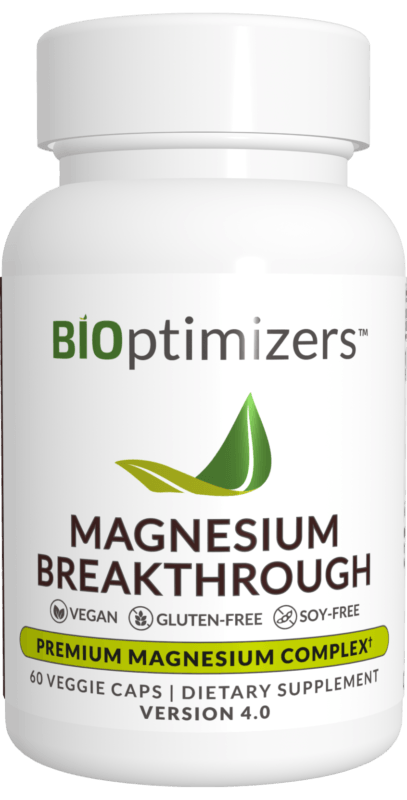 Atrial Fibrillation Natural Remedy: 13 Powerful Ways to Manage Afib Naturally
Atrial Fibrillation Natural Remedy: 13 Powerful Ways to Manage Afib Naturally
Atrial Fibrillation (Afib) remains a prevalent heart condition affecting millions across the globe. While traditional treatments are effective, a holistic approach that integrates natural remedies can significantly enhance the quality of life for those suffering from this condition. The listicle expands on existing remedies and introduces new strategies, each substantiated by research, to provide a well-rounded approach to managing Afib naturally.
1. Dietary Modifications
A diet rich in heart-healthy foods is pivotal in managing Afib. Beyond the Mediterranean diet’s inclusion of omega-3-rich foods, it’s crucial to focus on reducing sodium intake. Excess sodium can lead to hypertension, a significant risk factor for Afib.
Advanced Tips:
– Monitor Sodium Intake: Aim for less than 2,300 milligrams per day, with an ideal limit of 1,500 milligrams for most adults, as recommended by the American Heart Association.
– Fermented Foods: Incorporate probiotic-rich foods like kimchi, yogurt, and sauerkraut. Research indicates that a healthy gut microbiome can positively impact heart health by reducing inflammation.
2. Herbal Supplements
Herbs can be a natural way to support heart function. While hawthorn and motherwort are beneficial, additional herbs like garlic and turmeric offer anti-inflammatory and blood-thinning properties. Garlic, in particular, has been shown to lower blood pressure and improve blood vessel health.
Advanced Herbal Options:

– Garlic: Acts as a natural blood thinner and can help reduce blood pressure. Use garlic extract supplements for a concentrated dose.
– Turmeric: Contains curcumin, a potent anti-inflammatory compound that can help reduce the inflammation associated with Afib.
3. Magnesium Supplementation
Magnesium is essential for electrical stability in the heart. It’s involved in over 300 biochemical reactions, including those that regulate heart rhythm. For individuals with Afib, maintaining optimal magnesium levels can reduce the occurrence of irregular heartbeats.
Dosage Guidelines:
-Daily Intake: Aim for 310-420 mg of magnesium daily, depending on age and gender.
– Magnesium Forms: Magnesium Taurate is particularly beneficial for cardiovascular health as it helps stabilize the heart rhythm.
4. Mind-Body Practices

Managing stress is crucial for preventing Afib episodes. While yoga and meditation are highly effective, progressive muscle relaxation (PMR) can also be a powerful tool. PMR involves systematically tensing and relaxing muscle groups, which can lead to a profound state of relaxation.
Advanced Practices:
– Progressive Muscle Relaxation (PMR): Helps reduce physical tension and mental stress, which can trigger Afib.
– Biofeedback Therapy: Teaches you how to control physiological functions such as heart rate, which can help reduce Afib symptoms.
5. Omega-3 Fatty Acids
Omega-3s offer more than just heart rhythm benefits. They also reduce inflammation and improve endothelial function, which is crucial for maintaining healthy blood vessels and preventing arrhythmias.
Advanced Omega-3 Sources:

– Algal Oil: A plant-based omega-3 source, ideal for vegetarians and vegans.
– Krill Oil: Contains phospholipid-bound omega-3s, which may be more bioavailable than traditional fish oil.
6. Acupuncture
Acupuncture’s role in Afib management extends beyond just symptom relief. It may help regulate the autonomic nervous system (ANS), which controls the heart’s electrical activity. Balancing the ANS can reduce the frequency and severity of Afib episodes.
Enhanced Acupuncture Benefits:
– Heart Rate Variability (HRV): Acupuncture may improve HRV, a marker of ANS balance, indicating better heart health.
– Long-Term Management: Regular acupuncture sessions can provide cumulative benefits, reducing the need for invasive treatments.
7. Coenzyme Q10 (CoQ10)
CoQ10 not only supports energy production in heart cells but also acts as a potent antioxidant. It protects the heart from oxidative stress, which can exacerbate Afib. Supplementing with CoQ10 can enhance cardiac energy production and reduce inflammation.
Dosage and Forms:
– Daily Intake: 100-200 mg of CoQ10, ideally in its ubiquinol form for better absorption.
– Synergy with Magnesium: Taking CoQ10 alongside magnesium can provide a synergistic effect for heart health.
8. Lifestyle Changes for Afib: Transform Your Life, Transform Your Heart
Lifestyle changes aren’t just about small adjustments; they are the game-changer in managing Afib and reclaiming control over your heart health. Imagine waking up every day with the confidence that you’ve taken charge of your well-being. The power lies in adopting lifestyle habits that not only mitigate the symptoms of Afib but can also potentially reduce the frequency of episodes. These changes are more than mere suggestions—they are your secret weapon against Afib.
Optimize Your Sleep Environment:

Poor sleep can be a silent killer when it comes to Afib. Studies show that those who suffer from sleep disturbances have a higher risk of irregular heart rhythms. Turn your bedroom into a sleep sanctuary. Use blackout curtains to block out light, invest in a high-quality mattress, and maintain a cool room temperature. Consider white noise machines to drown out distractions. Remember, quality sleep isn’t a luxury; it’s a necessity for a healthy heart. By transforming your sleep environment, you’re setting the stage for restful nights and a heart that functions like clockwork.
Incorporate Interval Training:
While moderate aerobic exercise is crucial, adding short bursts of high-intensity interval training (HIIT) can supercharge cardiovascular health. Short HIIT workouts, even just 10 minutes a day, can help improve heart health and reduce inflammation. The best part? You don’t need a gym membership to get started. Simple exercises like alternating brisk walking and jogging in a park can make a huge difference. Interval training stimulates the heart in a way that helps it become more resilient, reducing the likelihood of Afib episodes. It’s time to break a sweat and feel the adrenaline rush from pushing your limits.
Cultivate a Daily Relaxation Ritual:
Stress is the kryptonite of a healthy heart, especially for those with Afib. Carve out at least 15 minutes daily for a relaxation ritual that centers you. This could be a calming morning meditation, a midday break for deep breathing exercises, or an evening wind-down routine with gentle yoga stretches. Make it a non-negotiable part of your day, like brushing your teeth. When relaxation becomes a daily ritual, sending a powerful signal to your heart: it’s okay to beat calmly and steadily. This daily dose of serenity can be the catalyst for a profound shift in your heart’s rhythm and resilience.
By embracing these lifestyle changes, you’re not just managing Afib—you’re taking the reins of your health and steering it toward a future where your heart thrives. These adjustments are the foundation of a life where Afib doesn’t call the shots—you do.
9. Hydration and Electrolyte Balance
Proper hydration is more than just drinking enough water. It involves maintaining a balance of electrolytes such as potassium, calcium, and magnesium, which are crucial for electrical conduction in the heart.
Advanced Hydration Tips:
– Electrolyte Supplements: Use electrolyte supplements that include a balanced mix of sodium, potassium, and magnesium.
– Monitor Fluid Intake: Drinking excessive fluids can cause water retention and strain the heart. It’s important to find the right balance.
10. Weight Management and Exercise
Weight management plays a critical role in Afib. Studies have shown that weight loss can significantly reduce the burden of Afib. Regular exercise helps control weight, improve cardiovascular fitness, and reduce the risk of hypertension.
Exercise Guidelines:

– Aerobic Exercise: Engage in moderate aerobic exercise such as brisk walking, swimming, or cycling for at least 150 minutes per week.
– Strength Training: Include strength training exercises to build muscle and boost metabolism.
11. Alcohol Moderation
Alcohol is a known trigger for Afib. While some studies suggest that moderate alcohol consumption might have heart benefits, individuals with Afib need to be cautious. Excessive alcohol intake can lead to “holiday heart syndrome,” where binge drinking triggers Afib episodes.
Alcohol Consumption Tips:
– Limit Intake: Stick to moderate drinking guidelines—up to one drink per day for women and two daily for men.
– Choose Heart-Friendly Options: If you choose to drink, opt for red wine, which contains heart-healthy antioxidants like resveratrol.
12. Anti-Inflammatory Diet

Chronic inflammation is linked to an increased risk of Afib. An anti-inflammatory diet focuses on foods that help reduce inflammation and support heart health. This diet includes high amounts of fruits, vegetables, nuts, and seeds, along with lean proteins and healthy fats.
Key Components of an Anti-Inflammatory Diet:
– Berries: Rich in antioxidants, they help fight oxidative stress.
– Fatty Fish: Omega-3-rich fish like salmon and mackerel reduce inflammation.
13. Quality Sleep
Poor sleep can exacerbate Afib symptoms. Sleep apnea, in particular, is a common condition in individuals with Afib. Ensuring adequate, high-quality sleep can help regulate heart rhythm and improve overall health.
Sleep Improvement Tips:
– Establish a Routine: Go to bed and wake up at the same time every day.
– Sleep Apnea Screening: If you snore or experience daytime fatigue, consider a sleep apnea evaluation.
Magnesium Breakthrough: The Game Changer for Atrial Fibrillation

Magnesium Breakthrough is not just any magnesium supplement; it’s a revolutionary blend that addresses magnesium deficiency, a common issue among Afib patients. Here’s why Magnesium Breakthrough should be part of your Afib management plan:
1. Synergistic Blend of Magnesium Forms
Magnesium Breakthrough is the only supplement on the market that includes all seven forms of magnesium in one bottle. Each form targets different body parts, ensuring comprehensive support for your heart and overall health. This unique combination provides full-spectrum support and addresses everything from muscle relaxation to stress reduction.
2. Improved Heart Rhythm and Stress Management
One of the most significant benefits of Magnesium Breakthrough is its ability to promote a regular heart rhythm. Magnesium Taurate, a key ingredient, specifically supports cardiovascular health by stabilizing the electrical impulses in the heart. Additionally, Magnesium Breakthrough helps prevent stress-induced Afib episodes by reducing stress and anxiety.
3. High Absorption for Maximum Benefit
Unlike other supplements, Magnesium Breakthrough is formulated for maximum absorption. Its unique delivery system ensures that magnesium reaches your cells, bypassing common absorption issues related to other magnesium supplements. This means faster, more effective results, ensuring that your heart receives the support it needs promptly.
4. Doctor-Approved and Backed by Science
Magnesium Breakthrough has been developed based on extensive research and is trusted by health professionals for its purity and effectiveness. Its blend is designed to replenish magnesium levels and optimize heart function, giving you peace of mind knowing you’re using a supplement that delivers results.
Ready to Take Control of Your Heart Health?
Click [here]to learn more about how Magnesium Breakthrough can help you manage Afib naturally. This life-changing supplement offers a simple yet powerful way to support your heart, reduce stress, and achieve a balanced, healthier lifestyle.
Conclusion
Atrial Fibrillation can be managed effectively through lifestyle changes, dietary modifications, supplements, and natural remedies.
Following these strategies, you can manage Afib through a holistic approach that includes a healthy diet and mind-body techniques. Remember, taking proactive steps now can make a significant difference in your heart health and overall well-being.
Empower yourself with these natural remedies and take the first step towards a life free from the constraints of Afib. And don’t forget to include [Magnesium Breakthrough] in your daily routine for unparalleled heart support and stress management. This revolutionary supplement offers the potential for a healthier, more well-rounded life.
References:
- https://www.healthline.com/
- https://www.medicalnewstoday.com/
- https://www.webmd.com/
- https://www.heart.org/
- https://www.health.harvard.edu/
Discover more:

